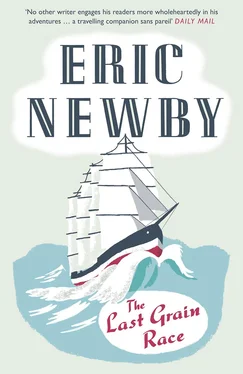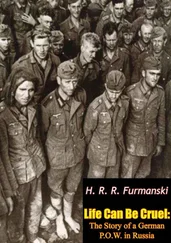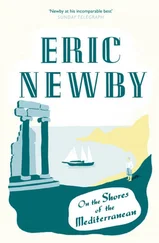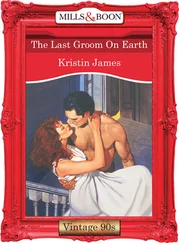After what seemed a lifetime, the Managing Director reached the final peroration: ‘What I always feel,’ he said, ‘is that we’re just one big happy family.’ He then sat down to a round of rather limited applause.
Now, in the grey morning, the party was over and the happy family was breaking up fast. In Layout and Ideas packing was going on with end-of-term abandon. The illusion was heightened by Julian Pringle, an enormous creature dressed in a green jacket of primitive homespun and a flaming tomato tie. He was sitting on his desk chanting ‘No more Latin, no more French’ whilst he tied up a great parcel of Left Book Club editions. This was nothing to him. Ideas men lived the uneasy life of King’s favourites, and if not discharged would very often take themselves off to another agency, sometimes with a client in tow. At nine-thirty this morning Julian had already been in touch with a well-known rival to Wurzel’s, who was glad to have him.
Before Robbie left I asked him why I had not been sacked with the rest of them. Robbie only called you ‘old boy’ in moments of stress. He was reluctant to answer my question. He called me ‘old boy’ now.
‘Well, old boy, they did think about it but they decided that it cost them so little that it didn’t make any difference whether you stayed or not.’
I was furious. The Porter had been wrong and I hadn’t ‘’ad it.’ I was perhaps the only member of the staff who would have actively welcomed the sack. Wurzel’s was a prison to me. All the way home in the Underground I seethed… too unimportant to be sacked…. At Piccadilly the train was full but the guards packed in more and more people. At Knightsbridge two of them tried to force an inoffensive little man into the train by putting their shoulders to the back of his head and shoving. Someone began to Baa loudly and hysterically. There was an embarrassed silence and nobody laughed. We were all too much like real sheep to find it funny.
At Hammersmith, where I emerged sticky and wretched from the train, I found that we had been so closely packed that somebody had taken my handkerchief out of my pocket, used it, and put it back under the impression that it was his own.
I bought an evening paper. It had some very depressing headlines about the breakdown of Runciman’s negotiations at Prague.
The next day I went to Salcombe for my holiday. During that fortnight while swimming in Starehole Bay I dived down and saw beneath me the remains of the four-masted barque Herzogin Cecilie lying broken-backed, half buried in the sand.
On my way back to London there was an hour to wait for the connection at Newton Abbot, and wandering up the hot and empty street in the afternoon sunshine I went into a café and wrote to Gustav Erikson of Mariehamn for a place on one of his grain ships.
I never went back to Wurzel’s.
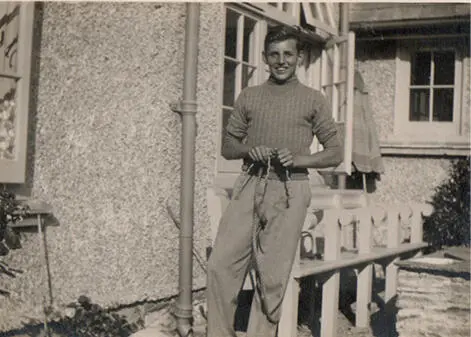
Young Eric Newby
The sea had always attracted me. I had inherited my enthusiasm from my father, who had once tried to run away to sea and had been brought back from Millwall in a hackney cab. He had not repeated the attempt but ever since, the sound of a ship’s siren or the proximity of a great harbour would unsettle him. He was, and still is, the sort of man who would crush other people’s toes underfoot to look out of a crowded compartment as the train passed Southampton Water, simply to gain a fleeting glimpse of the liners berthed there. Seagulls wheeling over a ploughed field would bring the comment: ‘There must be dirty weather at sea to drive them so far inland.’
My interest in sailing ships was being constantly renewed by my visits to the house of a certain Mr Mountstewart whose daughter had been a great friend of mine ever since I could remember. Although Mr Mountstewart was not old-looking when I first met him at the age of six or seven, he could not have been particularly young even then. He had taken part in the Matabele War, the Jameson Raid and various other skirmishes. Buchan would have loved him. In fact, if he had known Mr Mountstewart he would probably have incorporated him in the Thirty-Nine Steps instead of Hannay, who always seemed to me to be a creature unduly favoured by fortune.
You could not imagine Mr Mountstewart needing luck or coincidence to help him, although he was by no means well off and would probably have welcomed the chance that Buchan gave his heroes to make their piles before returning to ‘The Old Country’. Later, when he lent me Erskine Childers’ Riddle of the Sands , I immediately identified him with Davies, that splendid sailor and enthusiastic patriot. It did not surprise me when I learnt that he had known Erskine Childers. To this day I am convinced that Mr Mountstewart was a member of the British Secret Service.
At some time towards the end of the eighties he had made a voyage from Calcutta to London in a clipper ship which carried skysails above the royals. His description of sitting astride the skysail yard, which was as thin as a broomstick and shook violently, filled me with apprehension. He had shipped as a passenger, lived aft and had had leisure for reading and speculation. His reminiscences were to prove highly misleading.
The study where he worked was extraordinary, and nothing like it can conceivably have existed outside the British Museum and those sections of the Royal College of Surgeons not accessible to the general public. On the wall facing the door was the longest muzzle-loading punt gun I had ever seen. Below it was a smaller model. Mr Mountstewart was a Fen man and still occasionally discharged this piece from a specially strengthened canoe. Both punt guns hung close up to the ceiling, I suspect, because they were loaded. Beneath them a shark’s head, its jaws agape, protruded from the wall. Next door was the bathroom; sometimes when I called, Mr Mountstewart would be having a bath, and the sounds coming from it made me think that it was the invisible hind parts of the shark happily threshing the water.
On the back of the door hung a spiked pickelhaube from a volunteer regiment that Mr Mountstewart had joined in some sudden emergency. On one side it was flanked by a narwhal’s tusk and on the other by the sword of a swordfish.
To the left of the door over the fireplace was an oil-painting of the skysail yarder outside Foochow. She was shown with her ports painted black and white, which according to him was supposed to discourage piracy in the China Sea. The picture was by a Chinese artist whose imagination had overburdened the vessel with canvas.
For the rest the room contained a fantastic medley; faded photographs of early submarines at Spithead and the first turbine vessel Turbina , filled with apprehensive-looking men in bowler hats roaring through a crowded anchorage; assegais and knobkerries; devil masks and kris; Martini-Henry rifles and bandoliers of soft-nosed bullets.
In a recess stood a large bookcase, the top shelf filled with bottles containing nasty things in pickle, including a foetus, of what species I never dared to ask, only hoping it wasn’t human. The second shelf contained a quantity of Nobel explosive and, within dangerous proximity, an electric exploder. The shelves below were filled with books of travel, charts, maps and text-books which instructed you how to behave in the most difficult circumstances. One of these, a work on first aid in extremis , contained the account of a North American trapper successfully amputating his leg with a bowie knife after an affray with Red Indians. It also contained instructions for setting a broken collar bone by hurling yourself backwards off a rock.
Читать дальше
